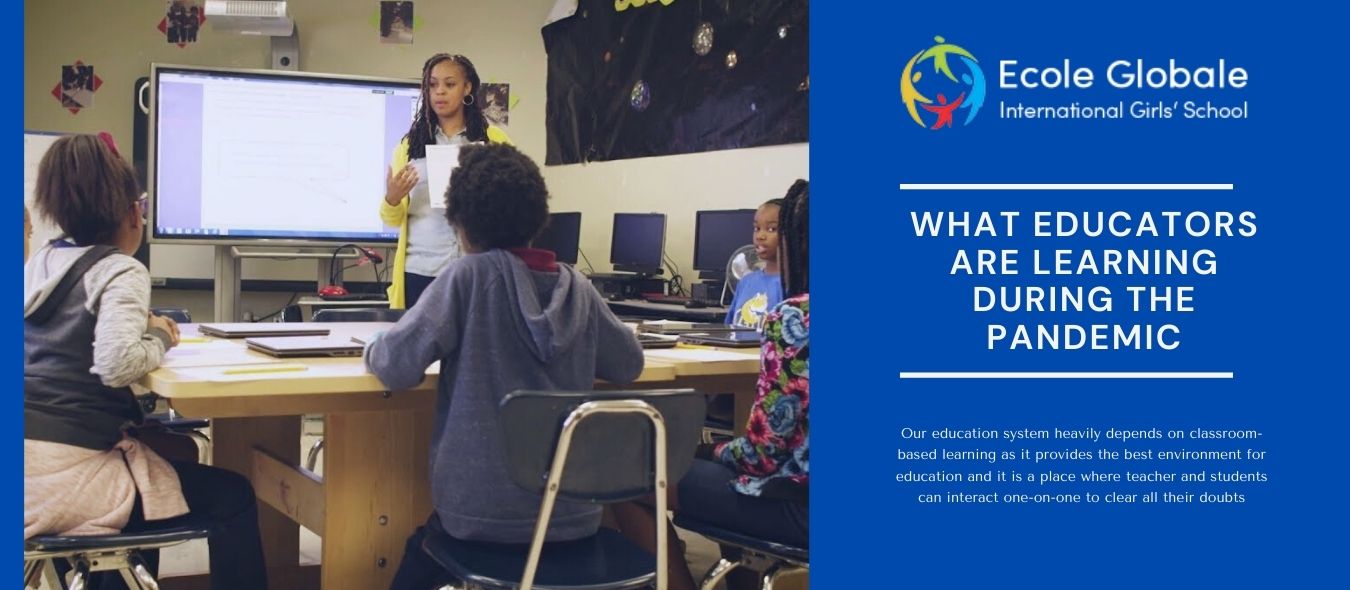Our education system heavily depends on classroom-based learning as it provides the best environment for education and it is a place where teachers and students can interact one-on-one to clear all their doubts. However, things got dramatically changed in the year 2020 when due to outbreaks of Coronavirus each country was forced to shut down completely, and no public gathering, schools, business were allowed to operate which resulted in the loss of health, economy, and education.
As everyone is living in Pandemic states with no timeline as to when the situation will improve and the world will come back to normal. Educational Institutions couldn’t wait for things to get normal as there will be a loss of education for the children and which can affect students’ future so in order to continue education most institutions decide to shift the classroom-based learning to completely virtual classrooms overnight.
Educators and students both faced difficulties as most of the educators are not tech-savvy like the younger generation so it took some time for them to get adjusted to the new virtual classroom. Additionally, many students didn’t have the basic infrastructure which is required for virtual education plus the mental health issue as all are living 24*7 inside their home without going out meeting friends, going out, etc. The Educator’s role has changed in a pandemic as now they not only focus on the academics of the students but also their social-emotional needs.
So here are a few things which educators learn during their virtual classroom experience which they can carry to classroom-based learning once things get normal in the world.
1 – Use of Education Technology
After switching from classroom-based learning to virtual classroom teacher now getting comfortable with technology and are using it to help students more efficiently and educational technology is assisting students in understanding the complex concept in a simpler and easier manner. Educators can use this advanced educational technology in their classroom-based learning and help students in improving their performance and make lessons more engaging. Educators now know more about virtual tools like Zoom, Google Classroom, cloud computing, Augmented Reality, MS offices and etc as they remain in their homes having more time in learning and exploring various tools to make the learning experience smooth for students.
2 – Building Strong Relationship is the heart of learning
As there is no one to one direct contact of educators and students which makes it hard for educators to build strong relationships with their students However many educators are trying unique ways to build strong relationships with students as what they do is they join the virtual classroom in advance and wait for students to join as students start joining one by one teachers interact with them asking about their health, casual conversations or asking about their plan for the weekends just to make students comfortable with the virtual environment and hence educators start to build the trust of their students, and many educators will definitely try to use this in normal classroom-based learning.
3 – Personalised and Project-Based Learning
Educators from all around the world are now understanding the power of personalized and project-based learning as they help students in developing skills that will m help them in their future. Many educators give projects to students like editing a video, designing an app, creating a website, solving problems using coding or creating a song on your own or creating a video, etc. Educators ask students to complete the work on their own or they could form a group of students. This will help students to learn something valuable plus it Will help them develop critical thinking, problem-solving skills and enhance their creativity.
4 – Updating Yourself with time
Educators now learn their lesson of keep updating yourself with time as before coronavirus maximum teachers don’t bother about new technology and try to avoid it at any cost, Additionally, they have curbed their knowledge as they were not constantly learning new things as it is a rule the everything changes with time so educators now realize that they have to keep on updating with time and set the example for students that learning is a continuous process and we should keep learning throughout our lives.








